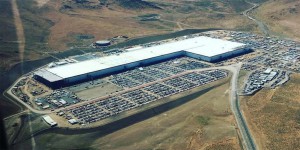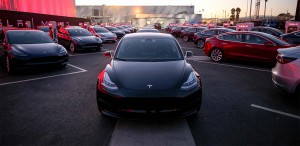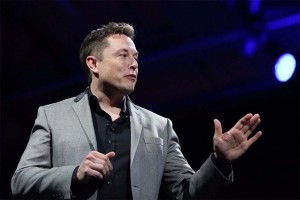
Former employee Martin Tripp claims he was fired after trying to report problems at Tesla's Gigafactory.
A former employee at the Gigafactory battery plant has sued Tesla after it claimed he committed sabotage and stole intellectual property.
Martin Tripp was fired by the battery-carmaker in June and subsequently sued by Tesla for allegedly sabotaging the company’s manufacturing system and also stealing its intellectual property. In turn, Tripp has filed a whistleblower complaint with the Securities and Exchange Commission, while also filing a lawsuit against Tesla.
In the lawsuit, the former employee said the carmaker took action after he “raised his concerns about the seemingly exorbitant amounts of scrap” being produced at the Gigafactory, though “no action was taken.” Tripp even sent an email to Tesla CEO on May 16, 2018 expressing his concerns and backing them up with “graphical charts.”
That led to a disagreement with his supervisors, Tripp alleges in his suit, as they wanted to “clean up” the piles of waste so they wouldn’t be observed during a visit to the plant by CEO Musk. Tripp was subsequently reassigned to a different operation at the Gigafactory but there, he claims, he witnessed additional problems that led to battery packs being dented and, in some cases punctured resulting in, 1,173 modules having to be replaced.
Tesla ultimately fired Tripp after he says he made additional efforts to get the problems at the Gigafactory dealt. Soon after, the company claimed that the former employee altered software that could cause damage to its manufacturing system. It also accused Tripp of copying secret files and sending them to persons outside the company. It was left unclear in the federal lawsuit Tesla filed in June whether Tripp had supplied information to news media, to competitors or both.
(Tesla Q2 losses double, but as production soars, profits promised in Q3. Click Here for the story.)
Curiously, while Tesla has filed suit in federal district court in Nevada, it has not attempted to bring criminal charges against Tripp, even though there are specific laws relating to both sabotage and data theft under which the one-time employee could face potential charges.
The only time the authorities so far appear to have become involved relates to a claim made by a female worker at the Gigafactory that she received a call alleging Tripp had threatened to “shoot the place up.” Tripp was interviewed by the Storey County Sheriff’s office which determined there was “no credible threat.”
The problems Tripp claims to have observed occurred during the “March to 2,500,” the push Tesla made early this year to start rolling out 2,500 of its Model 3 battery sedans each week. Production of the critical model began in July 2017 but serious problems at both the Gigafactory and Tesla’s Fremont, California assembly plant severely limited output. Production barely topped 2,000 by the end of March 2018 before reaching 5,000 by the last week of June. During a second-quarter earnings call last week, Musk claimed Tesla is now up to around 7,000 Model 3s weekly, with a goal of pushing that to 10,000.
(Tesla wants to hire designers – for video games. Click Here for the story.)

The question raised by Tripp is whether Tesla has tolerated quality problems to boost Model 3 production.
Just before Model 3 production was launched, Musk said he expected the company would face “manufacturing hell.” But it has denied the allegations about the battery plant, issuing a statement asserting that, “Tripp is either not telling the truth or he simply has no idea what he is talking about.”
CEO Musk has separately warned that there could be other “bad apples” who want to sabotage Tesla’s drive to increase production though, so far, no one else has been fired or sued.
Despite the fact that Tesla reported another loss, news of the jump in production and a likely third-quarter profit sent the company’s stock surging last week, racing as high as $353 a share before settling back slightly.
But there are still a large number of short-sellers, as well as analysts who continue to rate TSLA shares a “sell.”
(Tesla demands refunds from suppliers to help it claw back into black. Click Here for the story.)
One of the concerns frequently raised is whether Tesla can, indeed, maintain the current production pace. Equally concerning is whether the automaker has been willing to risk quality problems to reach current production levels. Analysts have warned that as it reaches out to a more mainstream audience, quality issues could cause Tesla serious problems.
The SEC has not stated a timetable for responding to Tripp’s whistleblower account.
Tripp’s case is just one of several employee issues Tesla is facing. It has been sued for discrimination. It is also battling with the National Labor Relations Board over a 2016 mass firing of nearly 1,000 Fremont plant workers. The carmaker alleged that their work wasn’t up to par though the NLRB has so far backed counterclaims that the workers were dismissed because they supported a drive to bring a labor union into Fremont.


This is turning into a great movie: sabotage, intrigue, selling company secrets, supposed threats of violence against former employer. Sounds like the USPS about 20 years ago.
So who’s going to play Mr. Musk, Leonardo DiCaprio?